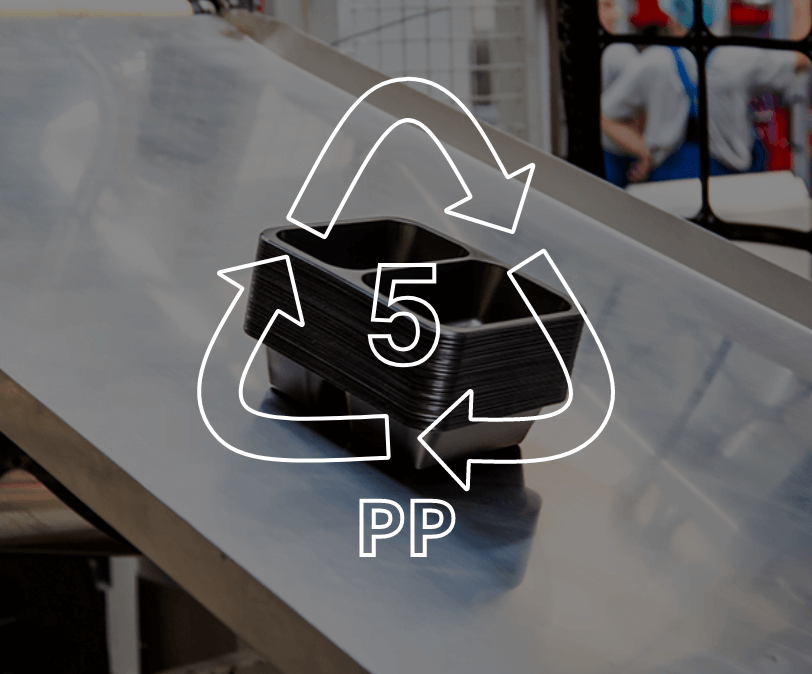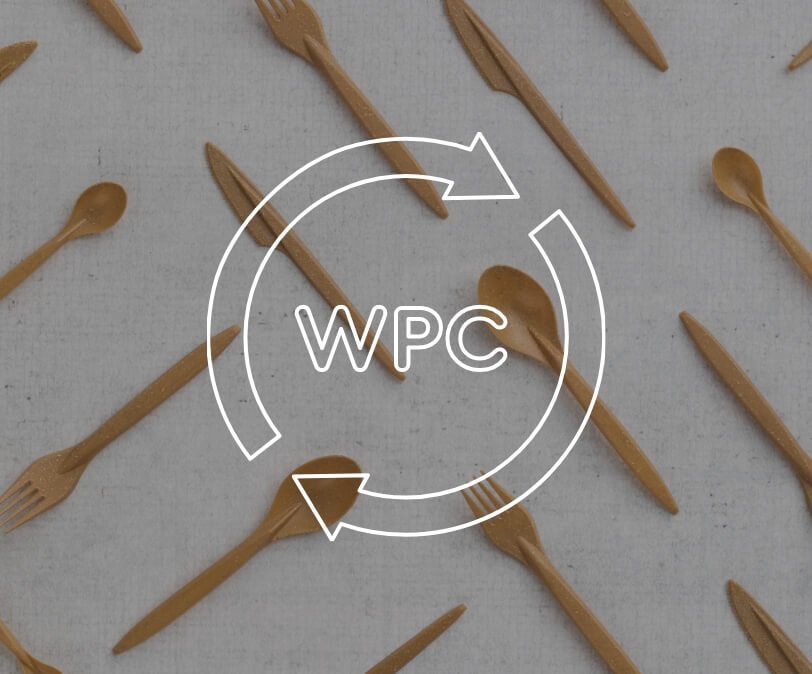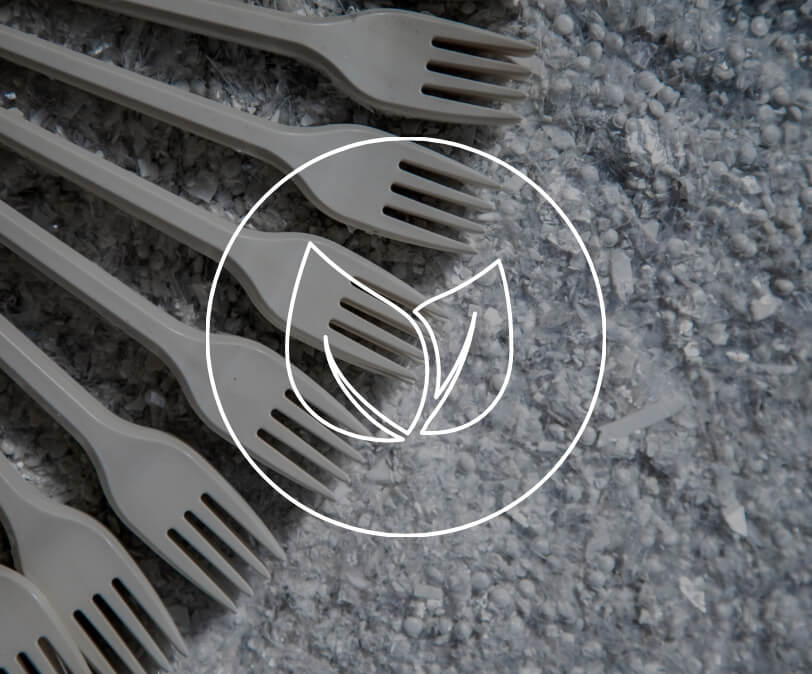Using the technologies available at our facility – extrusion, thermoforming and injection – we can produce products from both traditional polymers as well as from innovative bio-based and biodegradable materials. All our products are made of monomaterials and are 100% recyclable.

One of the most common and safest polymers used in the production of articles intended for contact with food. Items made from it are marked with the PP symbol and the number 5. It is odourless, water-resistant and very durable – products made from it can withstand both deep freezing and prolonged heating in microwave ovens. It is very recyclable and can be recycled multiple times.
An innovative material that is a combination of traditional polymer and natural wood fibre. The use of the composite allows a reduction in the proportion of plastic in the product by as much as 40-50%. At the same time, the material has a high strength that allows it to be used in the manufacture of reusable products, as it does not change its properties even after being washed 125 times in a dishwasher. In addition, WPC has a temperature resistance of up to 95°C.


Plastics are obtained in the chemical (artificial) polymerization process, however, they are from alternative sources and raw materials. Unlike traditional crude oil polymers, bioplastics are is produced from renewable sources such as sugar cane. The advantage of bioplastics is that they conserve raw materials by using cyclically renewed biomass. In addition, their production and use are carbon neutral, which means that their processing does not contribute to an increase in carbon dioxide production. Importantly, not all bioplastics are biodegradable. Bioplastics should not be equated with a shorter decomposition process.
Plastics are manufactured in a polymerization process, similar to traditional plastics such as polystyrene and polypropylene. Biodegradable materials, depending on aerobic or anaerobic processes, are completely decomposed by microorganisms (bacteria and fungi) into carbon dioxide, methane, water, biomass and inorganic materials.
